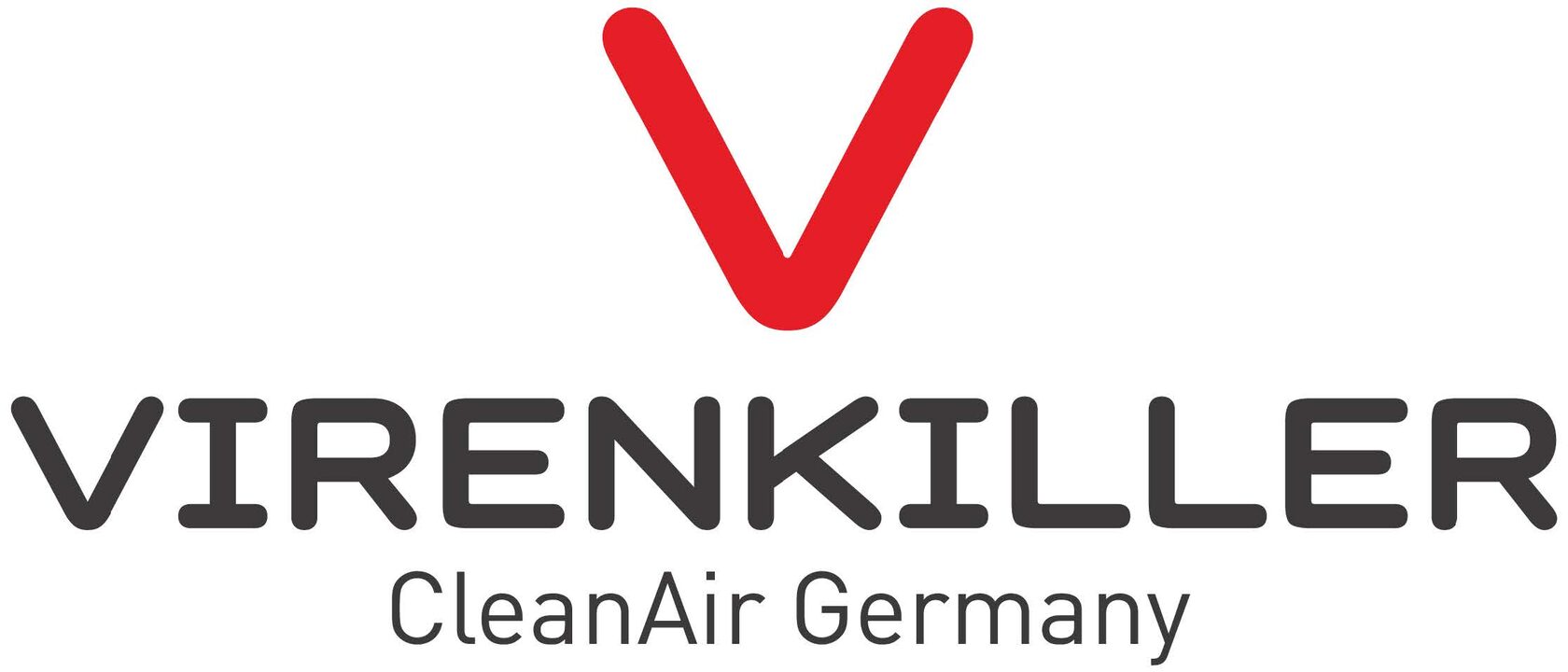Travel safe.
With the Virus Killer you have an effective instrument to convince your
clients, business partners and employees to have trust again
in a worry-free stay in your ferry boats, cruise ships and yachts.
clients, business partners and employees to have trust again
in a worry-free stay in your ferry boats, cruise ships and yachts.
Your Benefits:
- Protection for clients and partners
- Protection for employees
- Positive feedback and appreciation of employees
for this technology - strong marketing-Instrument
- trust in a safe work and onboard environment
- Harmless for humans, animals and plants
- TÜV SÜD certified*
The Virus Killer is also applicable in office buildings as an in-built component in the air condition system or as a standalone device in order to protect the health of your employees, clients and partners.
The sick-rate of your employees and partners can be reduced up to 20%.
The sick-rate of your employees and partners can be reduced up to 20%.


The HVAC GA is proactive and sends ionized aggressive advanced oxidizers into the room to destroy the pollutants at the source.
"Sick Yacht Syndrome"
Viruses, bilge odours, flesh eating bacteria, mold, yeast, holding tank odours, VOC's, stale air, diesel bacteria – all are indoor air problems on a ship or yacht. Why are indoor air problems magnified on a yacht and how can we control them? Indoor air problems or sick building syndrome is a widely recognized, universal health problem. What is new and gaining attention is Sick Yacht Syndrome.
The Virus Killer is suitable to eliminate the risks of this Sick Yacht
Syndrome by purifying the air up to 99+% of any potential air pollutants.
The so called PHI (Photo-Hydro-Ionization) Technology, which is developed in the US, is provided by Virenkiller CleanAir Germany for effective and fast air purification. HVAC GA does not need the pollutants to travel to the air handler for UV treatment or filtration. HVAC GA is proactive and sends ionized aggressive advanced oxidizers into the room to destroy the pollutants at the source, in the air and on surfaces, before they can reach your clients or employees. Unlike ozone generators, advanced oxidation systems use redundant safe oxidizers and are widely used by all major food processors, the military, major cruise ships, homeland security, hospitals, assisted living facilities, hotel chains, etc.
Stale Air – S.O.S. for S.Y.S.
Yachts are notorious for stale air. You can notice it as soon as you step onboard. There is a trademark odour. Some try to mask odours with another odour or scent. Companies actually specialize in "scent engineering", tying certain scents with feelings or moods. The problem with this concept of olfactory persuasion is that we all process odours differently. Roses may smell good to you and make you smile, but may remind the next person of a funeral home! The best scent engineering is a non-scent or the absence of all odours. Space and weight are design problems. Therefore heating, ventilation and air conditioning (HVAC) equipment is kept to a minimum. Make-up air or fresh outside air is limited or non-existent.
Make-up air
Make-up air should represent 25% of a yacht's airflow. Designers prefer to recycle the air as it is usually warmer or cooler than the outside air, so less energy is required to heat or cool the air. The problem is the same air is constantly being turned over.
Diesel Fuel
A yacht can carry anywhere from a few hundred to tens of thousands of gallons of diesel fuel. The fuel, of course, is confined to the fuel tank. Most yachts have a diesel fuel odour. Some are subtle, some are stronger. Assuming there are no leaks or spills, you will still get diesel odours from the fuel tank vents that relieve air pressure caused by fuel displacement of air and temperature variations. Fuel vents vent outside the boat. However, some diesel odours always seem to find their way inside the yacht, plus the engine room usually has many small leaks and venting. Why is this important to the yacht owner's indoor air problems? Aside from diesel fuel odour being unpleasant, diesel fuel is a microbial breeding ground and food source. Diesel fuel has the ability to harbor and grow 30 types of bacteria, 12 yeasts and over 80 fungi species. When fuel odours are present, these odours actually represent minute aspirated fuel particles that can easily be carrying some of the bacteria, yeast or fungi known to grow in diesel fuel.
Bilge odours
All yachts have bilges, and with them come odours, oil, fresh water from air conditioner condensers, and soapy wash water. All are excellent breeding grounds for bacteria. Oil, like diesel fuel, contains bacteria, yeast and fungi. Soap and detergents contain phosphates, which can fertilize our lawns and gardens but can also fertilize microbial growth. As with diesel odours, bilge odours aspirate minute particles of bilge water loaded with microbial and food sources for the microbials.
Holding tank odours
Yes, sewage stored in a yacht holding tank can run from 50 gallons to over 5,000 gallons. Again, these tanks are vented outside of the hull, and are a huge source of bacteria, viruses, methane, and hydrogen sulfide gases, and of course, odours. These sewage gases, bacteria and odours always seem to find their way into the yacht, again providing microbials as well as food sources for the microbials themselves.
Molds
Molds are gaining worldwide attention. Multimillion dollar homes are being razed due to mold contamination. Insurance companies are excluding mold damage from their coverage. Mold spores are everywhere. They simply need still air, moisture and a food source. Yachts provide a perfect atmosphere for growing mold. Ideal food sources are leather, paper, fabric and wood. This combined with stagnate air and dampness produces a perfect mold farm.
Wastewater Related Diseases and Viruses from Inhalation*
Water Pollution Control Federation, Tuberculosis, Histoplasmosis, Coxsackie A&B, Adenovirus, Bacteria Dysentery, Common Cold, Echovirus, Rotavirus
Viruses, bilge odours, flesh eating bacteria, mold, yeast, holding tank odours, VOC's, stale air, diesel bacteria – all are indoor air problems on a ship or yacht. Why are indoor air problems magnified on a yacht and how can we control them? Indoor air problems or sick building syndrome is a widely recognized, universal health problem. What is new and gaining attention is Sick Yacht Syndrome.
The Virus Killer is suitable to eliminate the risks of this Sick Yacht
Syndrome by purifying the air up to 99+% of any potential air pollutants.
The so called PHI (Photo-Hydro-Ionization) Technology, which is developed in the US, is provided by Virenkiller CleanAir Germany for effective and fast air purification. HVAC GA does not need the pollutants to travel to the air handler for UV treatment or filtration. HVAC GA is proactive and sends ionized aggressive advanced oxidizers into the room to destroy the pollutants at the source, in the air and on surfaces, before they can reach your clients or employees. Unlike ozone generators, advanced oxidation systems use redundant safe oxidizers and are widely used by all major food processors, the military, major cruise ships, homeland security, hospitals, assisted living facilities, hotel chains, etc.
Stale Air – S.O.S. for S.Y.S.
Yachts are notorious for stale air. You can notice it as soon as you step onboard. There is a trademark odour. Some try to mask odours with another odour or scent. Companies actually specialize in "scent engineering", tying certain scents with feelings or moods. The problem with this concept of olfactory persuasion is that we all process odours differently. Roses may smell good to you and make you smile, but may remind the next person of a funeral home! The best scent engineering is a non-scent or the absence of all odours. Space and weight are design problems. Therefore heating, ventilation and air conditioning (HVAC) equipment is kept to a minimum. Make-up air or fresh outside air is limited or non-existent.
Make-up air
Make-up air should represent 25% of a yacht's airflow. Designers prefer to recycle the air as it is usually warmer or cooler than the outside air, so less energy is required to heat or cool the air. The problem is the same air is constantly being turned over.
Diesel Fuel
A yacht can carry anywhere from a few hundred to tens of thousands of gallons of diesel fuel. The fuel, of course, is confined to the fuel tank. Most yachts have a diesel fuel odour. Some are subtle, some are stronger. Assuming there are no leaks or spills, you will still get diesel odours from the fuel tank vents that relieve air pressure caused by fuel displacement of air and temperature variations. Fuel vents vent outside the boat. However, some diesel odours always seem to find their way inside the yacht, plus the engine room usually has many small leaks and venting. Why is this important to the yacht owner's indoor air problems? Aside from diesel fuel odour being unpleasant, diesel fuel is a microbial breeding ground and food source. Diesel fuel has the ability to harbor and grow 30 types of bacteria, 12 yeasts and over 80 fungi species. When fuel odours are present, these odours actually represent minute aspirated fuel particles that can easily be carrying some of the bacteria, yeast or fungi known to grow in diesel fuel.
Bilge odours
All yachts have bilges, and with them come odours, oil, fresh water from air conditioner condensers, and soapy wash water. All are excellent breeding grounds for bacteria. Oil, like diesel fuel, contains bacteria, yeast and fungi. Soap and detergents contain phosphates, which can fertilize our lawns and gardens but can also fertilize microbial growth. As with diesel odours, bilge odours aspirate minute particles of bilge water loaded with microbial and food sources for the microbials.
Holding tank odours
Yes, sewage stored in a yacht holding tank can run from 50 gallons to over 5,000 gallons. Again, these tanks are vented outside of the hull, and are a huge source of bacteria, viruses, methane, and hydrogen sulfide gases, and of course, odours. These sewage gases, bacteria and odours always seem to find their way into the yacht, again providing microbials as well as food sources for the microbials themselves.
Molds
Molds are gaining worldwide attention. Multimillion dollar homes are being razed due to mold contamination. Insurance companies are excluding mold damage from their coverage. Mold spores are everywhere. They simply need still air, moisture and a food source. Yachts provide a perfect atmosphere for growing mold. Ideal food sources are leather, paper, fabric and wood. This combined with stagnate air and dampness produces a perfect mold farm.
Wastewater Related Diseases and Viruses from Inhalation*
Water Pollution Control Federation, Tuberculosis, Histoplasmosis, Coxsackie A&B, Adenovirus, Bacteria Dysentery, Common Cold, Echovirus, Rotavirus
Virenkiller Quick Treat
Technical data
Method: PHI (Photo-Hydro-Ionization)
Volt: 230 Volt / 1,25 Amp.
Watt: 9,6
Cell size: 2x 9'' with catalyst
Distribution of Oxidizers: through internal ventilator
Size L x W x H: 67 x 26 x 34 cm
Weight : 6 kg
Material: Aluminium
Ventilator: 150 m³/h
Method: PHI (Photo-Hydro-Ionization)
Volt: 230 Volt / 1,25 Amp.
Watt: 9,6
Cell size: 2x 9'' with catalyst
Distribution of Oxidizers: through internal ventilator
Size L x W x H: 67 x 26 x 34 cm
Weight : 6 kg
Material: Aluminium
Ventilator: 150 m³/h
CleanAir Micro
Technical data
Method: PHI (Photo-Hydro-Ionization)
Volt: 12V
Watt: 10
Cell size: 5'' cell
Distribution of Oxidizers: through in- & external ventilator
Size L x W x H: 10x10x39/25cm
Weight (without adaptor): 1,5 kg
Material: Aluminium
Capacity: up to 1.500 m3/h or as a standalone device 125 m3
Method: PHI (Photo-Hydro-Ionization)
Volt: 12V
Watt: 10
Cell size: 5'' cell
Distribution of Oxidizers: through in- & external ventilator
Size L x W x H: 10x10x39/25cm
Weight (without adaptor): 1,5 kg
Material: Aluminium
Capacity: up to 1.500 m3/h or as a standalone device 125 m3
HVAC 9-14
Technical data
Method: PHI (Photo-Hydro-Ionization)
Volt: 12V
Watt: 13,3-39,3
Cell size: 5''-14''
Distribution of Oxidizers: through in- & external ventilator
Size L x W x H:
Weight :
Material:
Capacity:
Method: PHI (Photo-Hydro-Ionization)
Volt: 12V
Watt: 13,3-39,3
Cell size: 5''-14''
Distribution of Oxidizers: through in- & external ventilator
Size L x W x H:
Weight :
Material:
Capacity:
HALO Led
Technical data
Method: PHI (Photo-Hydro-Ionization)
Volt:
Watt: 17
Cell size:
Distribution of Oxidizers: through in- & external ventilator
Size : Probe 280 mm / Plate 170 x 200 mm
Weight (without adaptor): 3 kg
Material:
Capacity: up to 250 - 6.500 CFM, 425 - 11.050 m3/ h
Method: PHI (Photo-Hydro-Ionization)
Volt:
Watt: 17
Cell size:
Distribution of Oxidizers: through in- & external ventilator
Size : Probe 280 mm / Plate 170 x 200 mm
Weight (without adaptor): 3 kg
Material:
Capacity: up to 250 - 6.500 CFM, 425 - 11.050 m3/ h
HVAC* Mini
Technical data
Method: PHI (Photo-Hydro-Ionization)
Volt: 12V
Watt: 9,6
Cell size: 5'' cell
Distribution of Oxidizers: through external ventilator
Size L x W x H: 26,6 x 5,5 x 3 cm
Weight (without adaptor): 0,3 kg
Material: Aluminium
Capacity: up to 1.500 m3/h
*Heating, Ventilation and Air Conditioning
Method: PHI (Photo-Hydro-Ionization)
Volt: 12V
Watt: 9,6
Cell size: 5'' cell
Distribution of Oxidizers: through external ventilator
Size L x W x H: 26,6 x 5,5 x 3 cm
Weight (without adaptor): 0,3 kg
Material: Aluminium
Capacity: up to 1.500 m3/h
*Heating, Ventilation and Air Conditioning
Protection through air purification
Protection for your clients, employees and your partners
Harmless for humans, animals and plants
Harmless for humans, animals and plants
easy installation and easy maintenance
Within 30min any car electrician has installed and connected the Virus Killer into your onboard electricity.
No maintenance is needed except the changing of the UV lamp after ca. 10.000 hours.
No maintenance is needed except the changing of the UV lamp after ca. 10.000 hours.
powerful marketing
Positive feedback and appreciation of clients and employees for this technology
Positive PR news in the media
Positive PR news in the media
TÜV SÜD certified
The PHI products are TÜV SÜD certified.
Request an offer now
Please contact us for more information and prices on the various PHI products.
Contact us. And we will be glad
to answer your questions
to answer your questions
Phone: +49 176 32960295
Mail: sales@viren-killer.com
Mail: sales@viren-killer.com
Virenkiller CleanAir Germany GmbH
Parkweg 78, 58453 Witten, Germany
Parkweg 78, 58453 Witten, Germany
By clicking the button you agree our Privacy Policy

